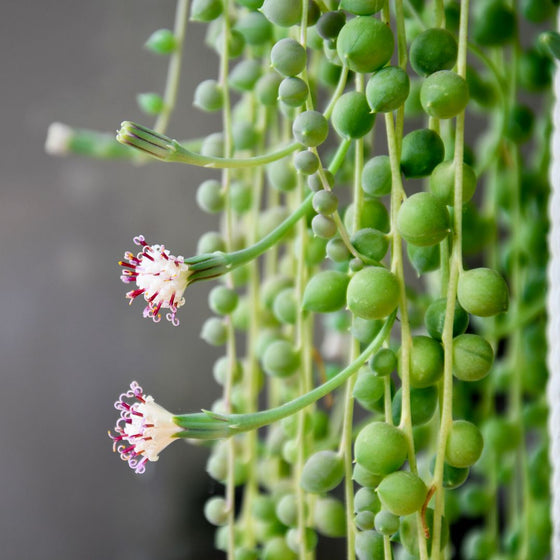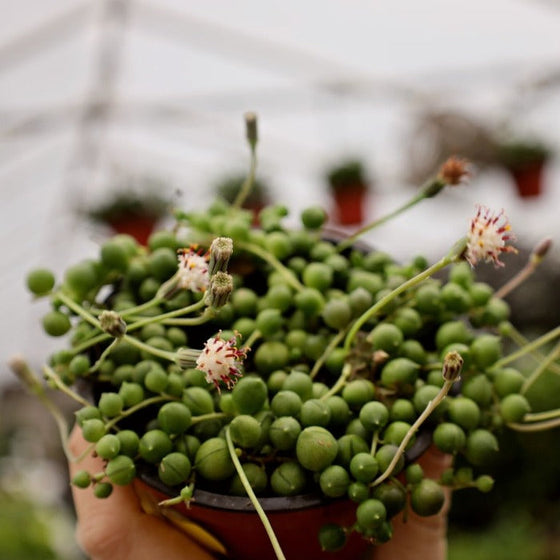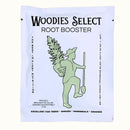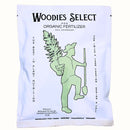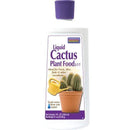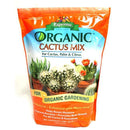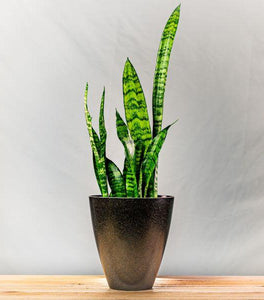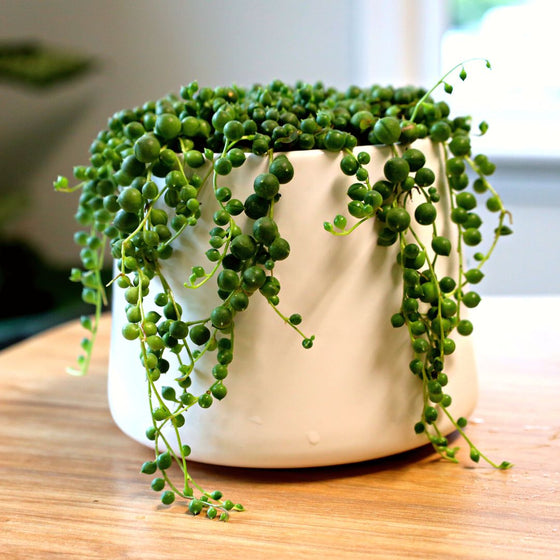
Images Depicted Range in Maturity & Container Size
Pots & Decorations Not Included Unless Otherwise Stated
String of Pearls Plant for Sale Online
Senecio rowleyanus, commonly known as string of pearls plant or string-of-beads, is a creeping succulent vine. It is native to the drier parts of southwest Africa.
In its natural environment, its stems trail on the ground, rooting where they touch and forming dense mats. It often avoids direct sunlight by growing in the shade of other plants and rocks. It is very low maintenance and the perfect plant for any level of plant owner.
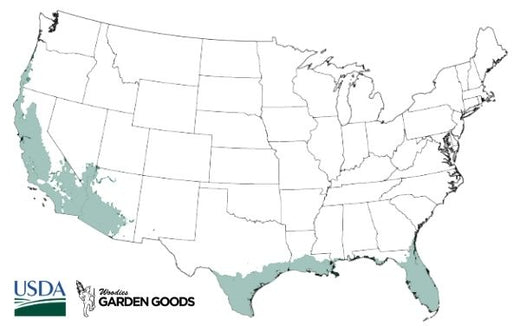
| Hardiness Zone: | 9-11 Outdoors |
|---|---|
| Mature Height: | 2 to 3 Inches |
| Mature Width: | 8 to 10 Inches |
| Classification: | Succulent |
| Sunlight: | Bright, indirect |
| Habit: | Trailing |
| Flower Color: | None |
| Foliage: | Green |
| Soil Condition: | Likes to dry out between watering |
| Water Requirement: | If unsure, do not water |
How to Care for String of Pearls Plant
Before you buy a String of Pearls Plant, make sure to read about the recommended care instructions to keep this plant healthy and thriving.
How should I repot my String of Pearls Plant?
We suggest re-potting your newly purchased String of Pearls Plant into a container 2 to 4 inches wider in diameter, and 2 to 3 inches deeper than the container it is in currently. Use a well draining potting mix, and be sure not to disturb the roots when transplanting. We recommend adding a slow release fertilizer to the new potting mix before watering in. The most common cause of plant death after transplanting is planting the new plant to deep. That is why we do not recommend planting in a container any deeper than the soil line of the plant in the pot. If planted too deep, the stem of the plant will be covered with soil, retaining moisture and eventually rotting. Keep in mind that this new potting mix will retain more moisture than the previous container, so watering in the beginning should be less frequent.
How often do I water String of Pearls?
The String of Pearls Plants should be watered relatively infrequently, as the plants like to dry out some between watering. The easiest way to tell if a plant needs to be watered is by the weight of the container. If the container is very heavy and the foliage is upright, chances are good the plant doesn't need water, whereas a light container and limp foliage means the plant needs some water. Sometimes, water pours out of the container without being retained by the soil. Soaking the dry soil in a small dish or saucer can be a useful way to solve this problem. It is important not to water the foliage of these plants, or to over-water them as this will lead to leaf damage or plant death. If you're unsure, it is always better to let the plant go dry instead of drenching it with water. Moisture meters are another easy way to tell if plants need to be watered, and usually come with a guide to indicate what number or level of moisture different plants require.
What type of fertilizer is recommended for the String of Pearls Succulent?
Indoor houseplant fertilizers fall into two groups: water soluble (liquid quick release), and granular, slow release fertilizers. Jack's Classic Indoor plant food works well as a powder for String of Pearls Plants. On the other hand Osmocote Indoor/Outdoor is an option as a granular, slow release fertilizer that can be applied while potting and planting. Any type of fertilizer offers nutrients that help plants with the transition to a new environment.

What type of soil is best for the String of Pearls?
The best soil for String of Pearls Plants is a well balanced mix of peat moss, perlite and vermiculite that dries some between watering but takes a long time to compact. Typically, any reputable potting mix will work well and includes those ingredients. Adding a granular, slow release fertilizer while planting is a good way to help the plant thrive in the transplanting transition however if the soil you've chosen already has fertilizer incorporated into it there will be no need to add additional fertilizer.

